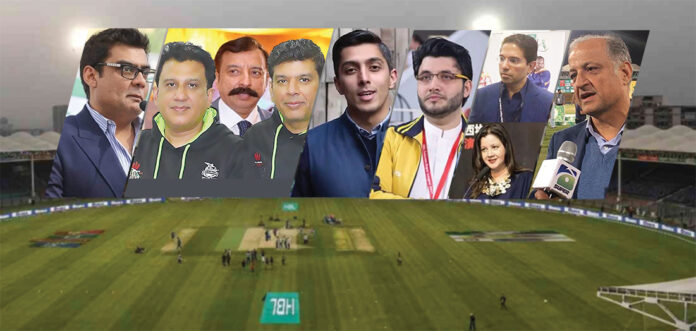Why would you buy a franchise of the HBL PSL? Back in 2015, when the teams first went up for sale, there was little financial incentive in buying a team. The tournament was being hosted entirely in Dubai, there was no guarantee that the PCB would have the patience (or stability) for a second season, and there were questions over whether the tournament would even be watched with the existence of the Indian Premier League right next door.
But the reality of franchise sports all over the world is that to the team owners, it isn’t always about the finances. Oftentimes it is a way to simply be close and involved in a game you love. Imagine you’re a billionaire and you’ve made your money doing something boring like selling socks or metal beams. You’ve spent your entire life becoming outrageously wealthy, but you still haven’t quite found the same happiness you did playing football with your friends as a kid. Even now, nothing quite gets you as passionate or entranced as a tight game in your favourite league. That is the moment you realise you can afford to not just be a viewer anymore. If you want to be involved, you can buy time and run it. Pick the coaches, hang out with the players, decide what works and what doesn’t — the full works.
And when you have the kind of money that can afford a passion project like a sports franchise, you aren’t always worried about the bottom line. It is a luxury you can afford. As Malcolm Gladwell writes on the motivation behind owning teams in the US’s National Basketball Association (NBA): “The issue isn’t how much money the business of basketball makes. The issue is that basketball isn’t a business in the first place — and for things that aren’t businesses how much money is, or isn’t, made is largely irrelevant….”
The situation was no different with the HBL PSL. The offer being made to them in 2015 was not particularly lucrative, and according to more than one of the team owners, they barely had time to negotiate a revenue sharing agreement. Why fall for the trap?
Well, maybe it isn’t a trap, but a toy. In a cricket crazy country like Pakistan, having a cricket team, which includes individuals who have worn the iconic Green blazer and others who have represented their own countries, is a vanity project like no other. A surprisingly large number of public figures (Nawaz Sharif, Atif Aslam, Faiz Ahmed Faiz to name just a few) think they could have played cricket professionally had they wanted to. A large number of businessmen also indulge this schoolboy delusion in their minds.
So what is the next best thing? – Basking in the high of packed stadiums chanting out the name of the team they own. Just think about it. Of the six teams, at least three have very prominent owners that have made their own brand synonymous with the team’s brand. Fawad Rana, the original face of the Lahore Qalandars, became the iconically loveable face of the Lahore Qalandars. Now, Atif Rana plays a similar if less animated role for the team. Javed Afridi has found his fame through his ownership of the Peshawar Zalmi not his ownership of Haier or MG, while Salman Iqbal has ventured beyond just the team to also buy the broadcasting rights for the league with his A Sports channel – something that gives him a large amount of influence over the league. Similarly, the latest entrant in the league is Ali Tareen. While he had a short career as a politician and has been a public figure on account of his family, his main time in the spotlight comes from the Multan Sultans. Even the usually media shy Ali Naqvi became a more household name through the HBL PSL.
But who are these owners, and what line of work are they in outside of the HBL PSL? What is the source of the money that allowed them to invest in the HBL PSL, and how have they shaped these passion projects?
Karachi Kings
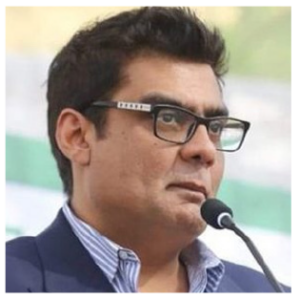 When the rights to the franchises were originally being sold by the PCB, the most expensive team was the Karachi Kings. Sold at $26 million for a period of 10 years, the Kings were the most expensive team for a reason. This was the team that would represent Pakistan’s largest and most populous city, and as such cost the most.
When the rights to the franchises were originally being sold by the PCB, the most expensive team was the Karachi Kings. Sold at $26 million for a period of 10 years, the Kings were the most expensive team for a reason. This was the team that would represent Pakistan’s largest and most populous city, and as such cost the most.
The man behind the Karachi Kings franchise was Salman Iqbal. The Pakistani media tycoon and entrepreneur, best known as the founder of ARY Digital Network, is the nephew of ARY Group founder Haji Abdul Razzak Yaqoob. Iqbal did his early schooling in Dubai and then went to the US to pursue a bachelors degree in Finance from the University of Houston. After taking charge of ARY Group’s operations, he diversified it from the legacy gold business into new verticals, including media, real estate, and sports.
In 2000, Iqbal launched ARY Digital Network, now one of Pakistan’s largest media groups, with channels like ARY Digital, ARY News, A Sports, etc. Its YouTube channel has over 62.5 million subscribers and is one of the most popular streaming platforms in Pakistan. As per PACRA, ARY Communications Ltd. reported a revenue of Rs. 15.2 billion ($54.2 million) and a net income of Rs. 1.34 billion ($4.8 million) in Fiscal Year (FY) 2024., where Salman holds 65% ownership.
He has also played a pivotal role in reinvigorating the Pakistani cinema by releasing over 35 films through ARY Films, Apart from that he also leads luxury real estate projects such as ARY Laguna, a beachfront housing project in Karachi, and has launched fintech ventures such as ARY Sahulat Wallet, which aims to promote financial inclusion in the country. While Iqbal was part of the ARY group and family, which originally gained its fame from their signature high-quality gold biscuits and eventually television channels, the HBL PSL was his most front-facing role. Since then, he has become a household name. As the team with the highest franchise fee, Karachi is one of the bigger teams that has struggled for profitability, but that has not stopped Iqbal from remaining committed to the course.
Lahore Qalandars
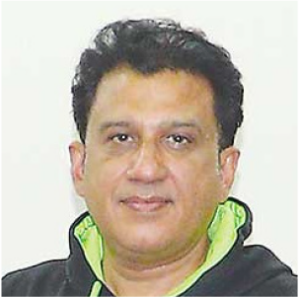 Fawad Naeem Rana is a Pakistani entrepreneur, philanthropist, and sports enthusiast, who was born in Lahore. He is famous for his ownership of the Lahore Qalandars cricket franchise in the Pakistan Super League (PSL) and his leadership role as the Managing Director of Qatar Lubricants Company Limited (QALCO), a Doha-based energy company. When the HBL PSL was first launched, he shot to fame faster than any of the other team owners.
Fawad Naeem Rana is a Pakistani entrepreneur, philanthropist, and sports enthusiast, who was born in Lahore. He is famous for his ownership of the Lahore Qalandars cricket franchise in the Pakistan Super League (PSL) and his leadership role as the Managing Director of Qatar Lubricants Company Limited (QALCO), a Doha-based energy company. When the HBL PSL was first launched, he shot to fame faster than any of the other team owners.
Loveable, dramatic, and highly animated, Mr Rana became known for his eccentric reactions and became the darling of the tournament’s fans. Despite his team’s poor form, he became a highlight in the tournament. From the beginning he was joined by his brothers, Atif and Sameen. Beyond the energy sector, Rana has shown a keen interest in the hospitality industry evident from establishments like the Shan-e-Lahore Restaurant in Qatar.
However, Fawad Rana chose to uninvolve himself in the franchise during the later seasons of the tournaments, and the team is now managed by co-owners Atif and Sameen as CEO and COO respectively.
Multan Sultans
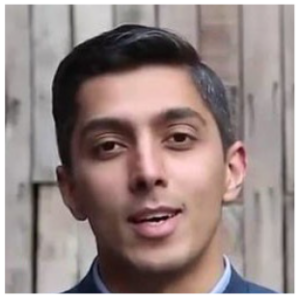 The Multan Sultans first started off as an Uncle-Nephew power project from one of the richest and most politically influential families in Pakistan. To make this possible, it had to be the Tareen family of Lodhran. The Multan Sultans was not part of the initial five teams that were sold by the PCB in 2015. When it was introduced in 2017, the team rights were bought by the Schon Group but because the tournament had seen some serious success, the team right sold for over $6.2 million per year.
The Multan Sultans first started off as an Uncle-Nephew power project from one of the richest and most politically influential families in Pakistan. To make this possible, it had to be the Tareen family of Lodhran. The Multan Sultans was not part of the initial five teams that were sold by the PCB in 2015. When it was introduced in 2017, the team rights were bought by the Schon Group but because the tournament had seen some serious success, the team right sold for over $6.2 million per year.
This was a price the Schon Group was not willing to pay. After a couple of seasons, they decided to back out and sell the franchise ahead. This is where Alamgir Khan Tareen, the younger brother of Jehangir Tareen, and his nephew Ali Tareen stepped in.
Professionally, Alamgir served as the Managing Director of Shamim & Company (Pvt) Ltd, the official bottler and franchisee of PepsiCo for South Punjab. During his tenure, the company became a significant player in the region’s beverage industry. Ali Tareen has also been involved in the family business, being particularly interest in agriculture, but cricket had always been a passion for both men — one they were ready to invest in . Tragically, Alamgir Tareen passed away in July 2023, and following his death the ownership of the Multan Sultans reverted to Ali Khan Tareen, who continues to manage the franchise till date.
While the Multan Sultans is the team with the highest franchise fee, it is backed by one of the biggest families in Pakistan. The JDW Sugar Mills, which is owned by Jehangir Tareen, generated a revenue of Rs. 130.6 billion ($465.4 million) and net profit of Rs. 13.7 billion ($48.9 million) in 2024. Ali Tareen owns 11,094,330 shares and 19.2% voting interest in the company. The Multan Sultans is not Tareen’s only cricket passion project, and he has spent significant time promoting grassroots cricket development in South Punjab.
Peshawar Zalmi
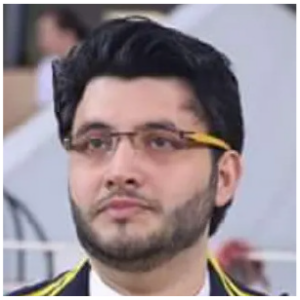 Walk into Javed Afridi’s office and you will see the picture of him before you see anything else including him. It is a larger than life image that hangs right behind his desk and is testament to the fact that Afridi is a man that recognises the importance of creating his own brand. From Bara in Khyber Pakhtunkhwa. His alma mater includes the University of Oxford, London School of Economics, Regent’s University London, and Edwardes College.
Walk into Javed Afridi’s office and you will see the picture of him before you see anything else including him. It is a larger than life image that hangs right behind his desk and is testament to the fact that Afridi is a man that recognises the importance of creating his own brand. From Bara in Khyber Pakhtunkhwa. His alma mater includes the University of Oxford, London School of Economics, Regent’s University London, and Edwardes College.
As the CEO of Haier Pakistan, Afridi has established his company as a leading home appliances brand in the country. During his tenure, Haier achieved a significant milestone by manufacturing 500,000 refrigerators in a single year, reflecting the company’s robust operational capabilities and market demand.
However, Afridi’s endeavors are not limited to home appliances but he has also made significant contributions to the automotive sector in the country. He is the one who introduced MG Motors to Pakistan through a partnership between his company, JW Group Pakistan and SAIC Motor Corporation Limited, a Chinese state-owned automotive company. This venture brought British automotive technology to the local market, where models like the MG HS and MG ZS EV have gained popularity.
Moreover, Afridi has also co-founded JoChaho, an e-commerce platform aimed at enhancing online retail experiences in Pakistan. This initiative reflects his vision to integrate technology with consumer needs, and further diversify his business portfolio .
Islamabad United
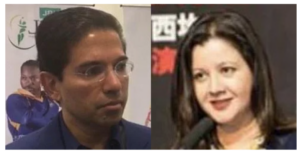 Ali Naqvi and Amna Naqvi are the principal owners of Islamabad United, one of the most successful teams in the HBL Pakistan Super League (PSL), through their company Leonine Global Sports, which itself is owned by Leonine Global Investments.
Ali Naqvi and Amna Naqvi are the principal owners of Islamabad United, one of the most successful teams in the HBL Pakistan Super League (PSL), through their company Leonine Global Sports, which itself is owned by Leonine Global Investments.
Generally media shy and probably the most seasoned and elegant business professional in the group, he made probably one of the smartest deals in that initial 2015 period. His team has a big brand presence because it is the federal capital, and has since grown this reputation by being the most successful team in the tournament. On top of this, because Islamabad is a small city, the team has one of the lowest franchise fees (just over a million dollars) to pay every year. This has made this franchise that rare creature in the HBL PSL that is also profitable.
Ali Naqvi currently serves as the CEO of Aletheia Capital, a global financial advisory and investment firm, specializing in Asia. He has spent over 25 years at the forefront of capital markets in Asia, where he served as Executive Chairman of Global Markets, Asia Pacific at Credit Suisse until June 2018. He managed more than $60 billion in assets along with over $1 trillion in capital transactions. Over the years, he introduced multiple innovations in research, client analytics, and business integration, including the “R vs R-2” financial management formula and the integrated equities model that became an industry standard for operational efficiency.
Amna Naqvi, co-leads Leonine Global Investments and serves as a powerful advocate for the arts. The duo maintain the largest private collection of Pakistani art in the world and support artists through the AAN Foundation. Amna has written extensively on art and has been instrumental in promoting South Asian cultural heritage globally. The couple’s broader business interests span media, technology, and sports, driven by a shared philosophy of nation-building through capital markets, cricket, and culture.
Quetta Gladiators
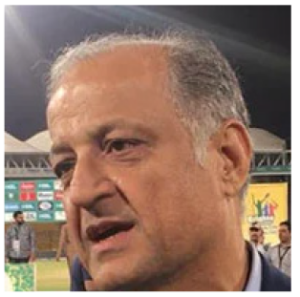 Nadeem Omar is a prominent Pakistani businessman and sports patron with deep roots in both commerce and cricket. As the Managing Director of the Omar Associates Group, a diversified conglomerate based in Karachi, he has played a significant role in Pakistan’s business and sporting spheres.
Nadeem Omar is a prominent Pakistani businessman and sports patron with deep roots in both commerce and cricket. As the Managing Director of the Omar Associates Group, a diversified conglomerate based in Karachi, he has played a significant role in Pakistan’s business and sporting spheres.
Omar Associates is primarily known for its activities in trading and export—especially in rice, coal, and general commodities. The company has grown over decades to establish a strong foothold in the Middle East, Southeast Asia, and Africa. Apart from trading, the group is also active in construction, real estate, and freight forwarding.
Furthermore, Nadeem Omar is actively involved in social and philanthropic causes. He has supported education and youth development initiatives through private efforts and partnerships. His role in sports development is widely respected for being grounded in sincerity rather than being commercially motivated. It could be said that through Quetta Gladiators, Omar Associates, and grassroots sports support, Nadeem Omar has created a lasting impact by blending business with purpose.



